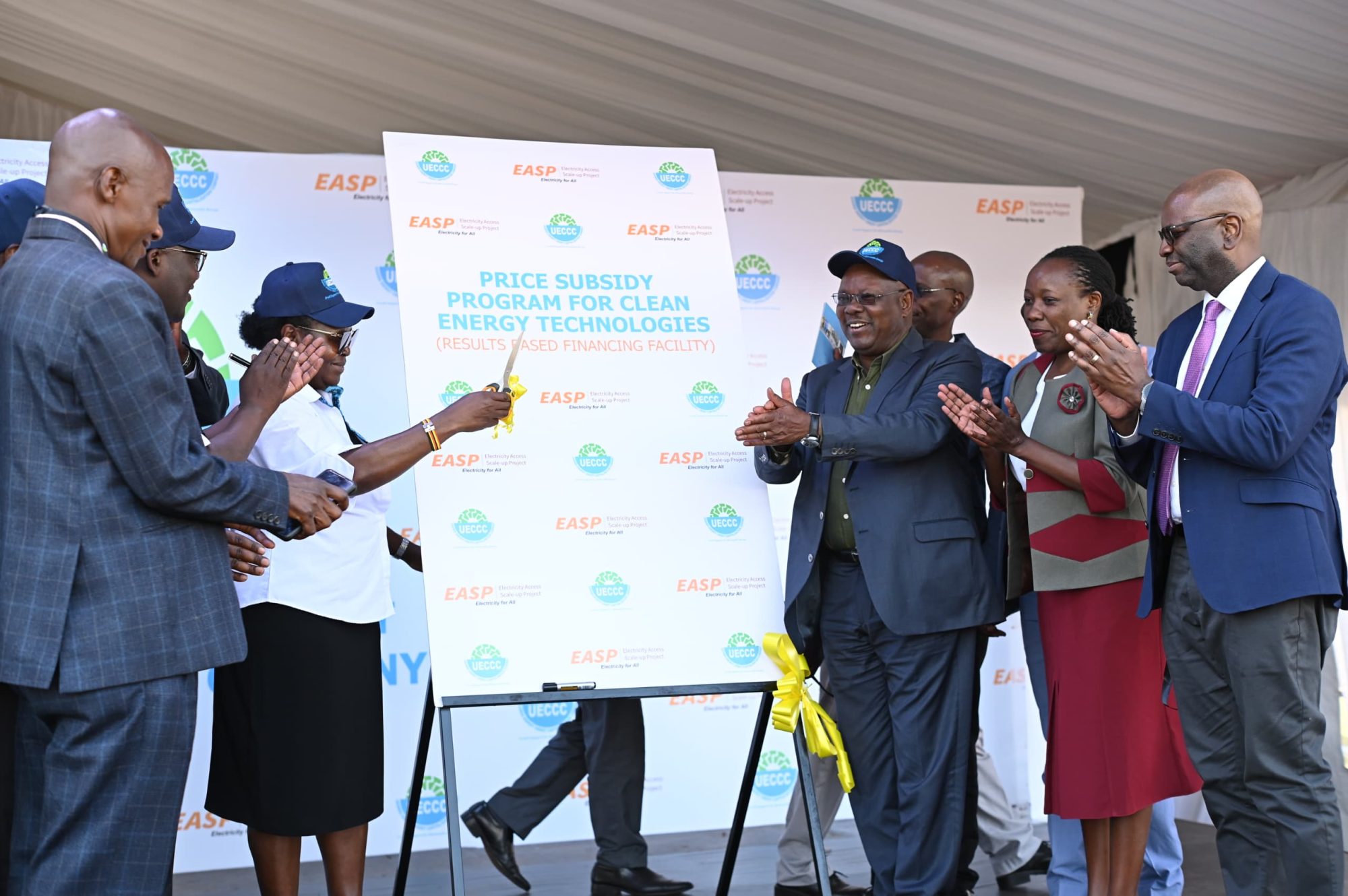Uganda launches affordable clean energy program for all
The program, which will provide price subsidies on clean energy equipment, is administered by the Uganda Energy Credit Capitalization Company (UECCC).

In an ambitious push towards cleaner, more affordable energy, the government of Uganda has launched a pioneering initiative aimed at making renewable energy accessible to a larger portion of its population. The project, valued at 400 billion shillings, is funded by the World Bank and is part of Uganda’s broader strategy to improve energy access through sustainable means.
The program, which will provide price subsidies on clean energy equipment, is administered by the Uganda Energy Credit Capitalization Company (UECCC).
This government agency is tasked with promoting financing for clean energy projects and advancing the country’s energy access agenda. The subsidy program, part of the Electricity Access Scale-Up Project, targets both rural and urban areas, with a particular focus on marginalized and vulnerable communities, including refugee-hosting regions.
Ruth Nankabirwa, Uganda’s Minister of Energy and Mineral Development, emphasized the long-term goals of the program during its launch. “This program is not just about providing affordable energy solutions,” she said. “It’s about transforming lives, promoting sustainable practices, and contributing to the achievement of the National Electrification Strategy, which aims to ensure that 50% of Ugandans are connected to on-grid electricity by 2030, with the other 50% relying on off-grid solutions.”
The price reduction initiative will specifically focus on clean cooking technologies, off-grid solar solutions, and productive use technologies for businesses. This includes technologies aimed at enhancing the productivity of small and medium-sized enterprises, helping boost local economies and job creation. According to Nankabirwa, the program’s inclusion of clean cooking solutions is a critical step toward improving public health, as many Ugandans still rely on harmful traditional fuels such as firewood and charcoal.
The rollout of the subsidy program comes at a crucial time, as Uganda grapples with significant energy poverty. Over 80% of the country’s population still relies on traditional biomass for cooking, contributing to deforestation, indoor air pollution, and significant health risks, especially among women and children. According to the World Health Organization, household air pollution from cooking with solid fuels is one of the leading causes of respiratory diseases in developing countries.
Dr. Isaac Mukasa, an energy expert and researcher at the Uganda Clean Energy Research Centre, believes the program could be a turning point for the country’s energy landscape. “This initiative is not just about providing energy; it’s about creating an ecosystem for clean energy to thrive. The subsidy will make it possible for low-income households and small businesses to access solar and energy-efficient technologies that they otherwise couldn’t afford. This has the potential to reduce the country’s reliance on firewood, improve air quality, and reduce deforestation,” he explains.
Dr. Mukasa points out that while Uganda has made strides in extending the national grid, a large portion of the population remains disconnected, especially in rural areas. Off-grid solutions like solar energy have proven to be a viable alternative. However, the high upfront cost of solar equipment has been a significant barrier to widespread adoption. The price subsidy program aims to alleviate this financial hurdle by making clean energy solutions more affordable and accessible.
Another critical aspect of the program is its focus on clean cooking solutions. In many Ugandan households, cooking is done over open fires or traditional stoves, which not only waste energy but also produce harmful emissions. Clean cookstoves, which are more energy-efficient and produce fewer pollutants, are seen as an essential part of the solution to the country’s environmental and health challenges.
“This program will help transition millions of Ugandans from harmful cooking practices to cleaner, more sustainable methods,” Dr. Mukasa adds. “In addition to improving health outcomes, it will also ease the strain on the environment, helping Uganda meet its climate goals.”
One of the key benefits of the subsidy program is its potential to support local businesses. Many small and medium-sized enterprises in Uganda struggle with unreliable electricity, which hampers their productivity. By providing access to off-grid solutions, such as solar-powered equipment, the program will help businesses lower operational costs and become more competitive.
“The introduction of clean energy solutions is going to significantly reduce operational costs for businesses,” says Brian Ochieng, a small business owner in Kampala who sells solar-powered products. “The unpredictability of power supply has always been a challenge for many businesses in Uganda. Solar energy offers a stable and reliable alternative that is not only affordable but also environmentally friendly.”
For rural Ugandans, especially those in refugee-hosting areas, this program is a lifeline. It is expected to create new economic opportunities and improve living standards. The increased access to clean energy will also reduce the time spent gathering firewood, allowing women and children more time to engage in productive activities like education or business.







